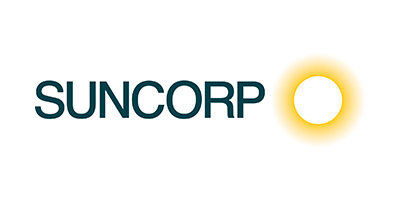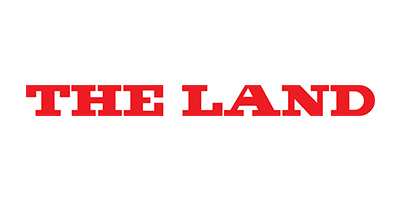The below information is being provided by Animal Health Australia and Agricultural Shows of Australia to assist Show Societies with important information should an Emergency Animal Disease (EAD) occur during an AgShow.
Avian Influenza
Avian Influenza (AI) was detected at two commercial poultry farms in the Greater Sydney Basin in June 2024.
To stay updated with NSW DPI emergency orders visiti https://www.dpi.nsw.gov.au/dpi/bfs/animal-biosecurity/avian-influenza
Common sense biosecurity protocols which should apply at all times. As a guide, general biosecurity recommendations for exhibition poultry can be found here: https://www.agriculture.gov.au/biosecurity-trade/pests-diseases-weeds/animal/avian-influenza/domestic/national-biosecurity-manual-exhibition-poultry
Understanding AI: AI, commonly known as bird flu, is a highly contagious viral infection that can cause severe illness and sudden death in birds. AI can infect a wide range of birds including chickens, turkeys, quails, guinea fowl, partridges, pheasants, emus, ostriches, and a large number of aviary and wild birds, especially waterfowl such as ducks, geese and swans. Symptoms may include respiratory signs such as coughing, sneezing, and rasping breathing, a rapid drop in feed and water intake, and typical sick bird signs like ruffled feathers, depression, and closed eyes.
Preventive Measures: To mitigate the spread of this disease, we are urging all members to adhere to the following biosecurity measures at Shows:
- Record Keeping: Maintain accurate records of bird movements in and out of your Shows.
- Hygiene Practices & Limiting Contact: Ensure that all equipment and cages are cleaned and disinfected before and after attending shows. Hand hygiene is paramount—encourage judges, stewards and other volunteers to wash their hands thoroughly between handling different birds to prevent cross-contamination.
- Communication in Schedules: Include information in Show Schedules HPAI to alert competitors, provide the key contact information below and encourage poultry exhibitors to be vigilant.
- Monitoring Health: Regularly check birds for any signs of illness. If any birds show symptoms of AI, report it immediately to your veterinarian or the Emergency Animal Disease Hotline at 1800 675 888.
- Separation of Species: Where able, ensure different species, especially waterfowl, are not displayed in the same pavilion to prevent cross-species transmission.
Resources and Support: From AgShows NSW and DPI to assist you in implementing these measures effectively:
- AgShows NSW Poultry Health Declaration Template - 4 feb 2025
Stay Informed: Keep yourself updated on the latest information about animal and plant pest and disease outbreaks in Australia by visiting outbreak.gov.au.
Important Contacts:
- Emergency Animal Disease Hotline: 1800 675 888
- NSW DPI Website for Avian Influenza Information: dpi.nsw.gov.au/ai
Red imported fire ants (Solenopsis invicta)
Information about fire ants and stopping their spread in NSW - https://www.dpi.nsw.gov.au/dpi/bfs/insect-pests/rifa
Online training from NSW Government
Interactive online training modules are now available for sheep and farmed goat producers, saleyards and stock and station agents.and processors.
The training only takes around 30 minutes to complete and will help you better understand:
- The changes to NLIS requirements for sheep and farmed goats in NSW
- What you need to do to be ready and further explore the changes for each sector in the industry.
Changes to GoatMAP
Animal Health Australia have recently finished a review of GoatMAP with Goat Industry Council of Australia and Herd Health that has split the existing program into two modules – biosecurity and JD – as well as added a new module for CAE, which was identified as another industry priority disease.
https://www.farmbiosecurity.com.au/toolkit/declarations-and-statements/
Artwork for Biosecurity Signs
Below is the finished artwork for you to have additional handwashing signs & the hand sanitizer sign printed. The A2 signs to go up on walls inside and outside animal pavilions and also A3 signs that are to go above handwashing areas.
Show organisers are required to record livestock attendance at Shows. The DPI work with the ASC to help Shows comply. Click here for the NSW DPI NLIS Letter dated 8th March 2019.
General Biosecurity Duty Flyer
NLIS Transfer Forms
Please complete the NLIS forms applicable to your Show and forward to Nicky Seeto, ASC Office at:- nicky.seeto@ascofnsw.org.au or fax 02 9879 6043 within two days of your Show.
NLIS form Cattle movements to and from show
NLIS form Sheep & Goats & Pigs MB movements to and from show
NVD Mock up showing how to return animals on the same NVD
ASC OF NSW Livestock Biosecurity Handbook - March 2018
ASC of NSW Livestock Biosecurity - Infomation Handbook March 2018
How to obtain a PIC number
It is a requirement in NSW for owners of livestock such as cattle, sheep, goats and pigs to have a Property Identification Code (PIC) when trading or moving these livestock.
A PIC is a unique eight-character number assigned by Local Land Services to properties with livestock. This property registration system allows for the tracing of livestock to assist with disease and chemical residue management.
To obtain a PIC you must complete an application form and lodge it with your Local Land Services office.
Application for a Property Identification Code
National Health Declaration Forms
Agricultural Show societies require exhibitors to complete a declaration on the health status of animals participating in shows as part of showground biosecurity and the management of animal health.
Beef Cattle, Sheep & Goat Health Declaration Forms (Farm Biosecurity Website)
National Cattle Health Declaration 2022 Fillable Form
National Goat Health Declaration Form
National Sheep Health Declaration Fillable Form
Horse Health Declaration August 2023 Fillable Form
Understanding the Cattle Health Declaration and why you need to use it. - Click here
Recommendations to Shows Conducting Cattle Competitions: Measures to Minimise Risks of BVDV (Pestivirus) Transmission in Show Cattle
To protect our stud breeders and the integrity of country Shows refer to the Pestivirus guidelines in this document Click here
Suggested Schedule wording regarding Pestivirus February 2024
Hendra Virus
For information on Hendra Virus please click on the fact sheets below.
Fact Sheet on the Hendra Virus
Biosecurity Guidelines for Horse Events
NLIS Scanner - Instructions for use
NLIS Procedures for Show Committees - Part 1
NLIS Procedures for Show Committees - Part 2
NLIS Procedures for Show Committees - Part 3
NLIS Database User Guide For Sporting Events, Transit Centres and Live Exports
Electronic version of the NLIS Database User Guide for Sporting events, Transit centres and Live Exporters. Click here to access the guide
If you would like a printed copy, please check (and if necessary, update) your NLIS Database account details by logging on to the NLIS Database and following the ‘Change account details’ instructions in the new guide. If you need to update your postal address, contact the NLIS Database Helpdesk for assistance (by phone on 1800 654 743 or via email nlis.support@mla.com.au). A printed guide will then be posted to you on request.
Guidelines for NSW Shows and Sporting Events
https://www.dpi.nsw.gov.au/__data/assets/pdf_file/0005/1468409/PUB17-491v2-Guidelines-Guidelines-NLIS-for-shows-and-sporting-events-2023.pdf
NLIS Quick Guide: NLIS for Shows and Campdrafts
https://www.dpi.nsw.gov.au/__data/assets/pdf_file/0003/1468416/PUB18-153v2-Quick-Guide-Quick-guide-NLIS-for-shows-and-campdrafts-2023.pdf





